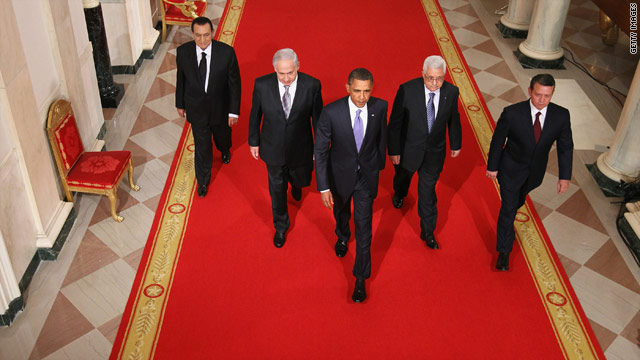Yusuf bin Alawai bin Abdullah, Oman's minister responsible for foreign affairs, told CNN that "indecision and confusion" at the White House at times delayed the talks -- which began eight months ago when the United States requested assistance securing the release of Sarah Shourd, Shane Bauer and Josh Fattal.
"The White House was confused because it was working on several different tracks at the same time," he said in a telephone interview. There were delays "due to the White House administration."
But it was Obama who cleared up any problems, bin Alawai said. It was "easy for us to talk directly to the president," he said.
The Omanis also dealt with Iranian President Mahmoud Ahmadinejad, saying that negotiators enjoyed good access to both leaders.
The talks "stalled" after only three months. But Omanis helped facilitate a visit from the hikers' families to Tehran.
Talks began again only because of concerns about Shourd's health, the minister said. A spokeswoman for the hikers' families told CNN that Shourd told her mother during their only visit together that she had found a lump in her breast.
Shourd, 32, was released from Tehran's Evin Prison and traveled to Oman on Tuesday. Omani sources paid a $500,000 bail, a senior U.S. administration official said.
Bin Alawai said that Shourd is "in good form and good health" in Oman. There is nothing to stop her "enjoying her life in the U.S.," he said, but she is welcome to stay in Oman as long as she likes.
"There is no pressure on her to leave," he said.
Bin Alawai would not say who paid Shourd's bail.
"I don't want to talk about that" because it might be of "help in the future," he said. He did say, however, that it was a "legal process" that had some "small" problems that were quickly overcome but led to a short delay in the announced release.
Administration officials were somewhat confused over how to deal with the Iranians on some of the issues that came up, the minister said, particularly in July when Iranian nuclear scientist Shahram Amiri appeared at the Iranian interests section of the Pakistani Embassy in Washington demanding a ticket to Tehran.
"It caused a disturbance at the White House," bin Alawai said.
U.S. officials said Amiri defected to the United States in 2009 and provided information about Iran's alleged nuclear weapons program. Iran maintains he was abducted by U.S. agents in Saudi Arabia. Despite the "disturbance," bin Alawai said, the idea of an exchange of Amiri for the hikers surfaced.
"The Iranians were ready to think about an exchange," he said, but at the White House "not everyone was on board at that time."
Bin Alawai avoided saying that Shourd's release was part of an exchange, but allowed that "it may have helped" that Amiri eventually returned to Iran.
Iran has accused the three hikers of spying, but no charges have been filed. Shourd's fiance, Bauer, and Fattal, both 28, remain at Evin Prison. They were detained on July 31, 2009.
